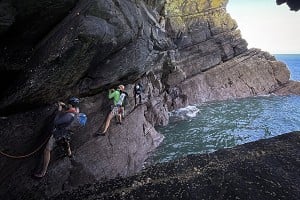
"Down in the city, I was a girl being treated differently. When I went to the mountains with my Dad, I felt like an equal." For Shirin Shabestari, climbing and mountaineering presented an opportunity to transcend the oppressive barriers of inner-city life whilst growing up in Tehran. Forced to cover up her body and hair in the interest of public chastity, Shirin adhered to her country's conservative dress code. In the mountains, however, she experienced a unique sense of emancipation which eluded her in the city.
Since the 1979 Islamic Revolution, women in conservative Iran must adhere to an oppressive regime of the morality police - currently the Gasht-e Ershad - an agency tasked with enforcing Iran's Islamic code of conduct in public under the support of the Basij militia. Their focus is on ensuring observance of hijab - mandatory rules requiring women to cover their hair and bodies and discouraging use of cosmetics. Men and women are permitted to mix socially with members of the opposite sex outside of family relations, but must maintain appropriate social etiquette, and females require a male relative to act as chaperone to take part in some activites.
The situation of women in Iran has oscillated between progression and regression over the past years, and has received substantial coverage in the media of late. Through social media, some Iranian women rebelled against the morality police and asserted their independence through a Facebook campaign named 'My Stealthy Freedom,' in which they stealthily remove their hijab in public. Last month, Iran held its first marathon, only for women to be excluded. A female MP was barred from office for shaking hands with an unrelated man, and police in Tehran have increased the numbers of morality agents deployed on the streets with a special emphasis on targeting women bearing 'bad hijab.' In an act of modern rebellion, an App named 'Gershad' has been created to help women and young people locate and subsequently dodge the agents. At this critical point in Iranian's turbulent history, the recent Iran elections saw a record number of women elected to parliament, at 6%, suggesting that times may be changing.
In 2003, mountaineering ranked as the most popular sporting activity participated in by women in Iran: ahead of volleyball, karate, netball and football, with 290,487 female participants recorded (1). An interesting statistic, when compared with UK women's participation in 2015, where mountaineering still held a male bias and just 35% of participants in outdoor activities were female (2). Greater proximity to the mountain environment is clearly an important factor influencing participation, but the restrictions and limitations imposed on women when taking part in inner-city activities must also be considered.
"The mountains suddenly offered a whole different world. A world where it was okay to let the scarf slip. To let the wind magically blow your hair around."
In Iran, climbing walls - like most sporting facilities in Iran - have separate and limited hours of access for women. Female climbers, like other athletes, must also obey the dress code by wearing long, loose garments and covering their hair. Additionally, spectating competitive sporting events is limited for women: some women's national competitions can be watched by men such as handball, indoor football, and volleyball, discus and archery, but women often cannot watch men's matches and are certainly not allowed in football stadiums. In certain situations and areas, it is simply not allowed for either sex to watch competitions featuring the opposite sex close-up. There have, however, been recent calls to improve on access to sporting events for women.
It is easy to understand how lack of opportunities to watch and be inspired by sporting events may impact participation rates for women negatively. Conversely, Iran has long been at the forefront of Muslim women's sport, thanks to strong organisation and coaching. It has been suggested that segregation has in fact fostered an increased participation rate in sport by Iranian women, albeit in isolation and to a limited extent, simply due to the fact that division by sex can provide an equal, inclusive platform (1). Paradoxically, relaxation of rules surrounding participation in sport by women has only been achieved through adhering to segregation and strict veiling policies. The development of sports hijabs has in recent years enabled female Muslim athletes to compete internationally and in some cases attend competitions alongside men in their own country.
However, for an Iranian woman partaking in a growing minority sport such as indoor or ice-climbing, this segregation by sex means not only limited access to facilities, but also a lack of women - and men - to climb with and train alongside.
The contrast between women's experience of climbing in Iran and the UK is striking in itself, but the variation in how climbing is enjoyed and in the barriers faced by women in Iran across different disciplines is equally intriguing. At a time when Iranian women are making their voices heard like never before, I interviewed three female Iranian climbers who are at the forefront of Iranian climbing and mountaineering to find out how they are subverting preconceived ideas about women in sport and inspiring a new generation of young climbers.
"In the mountains we are the same, the problem is in the city."
Shirin Shabestari
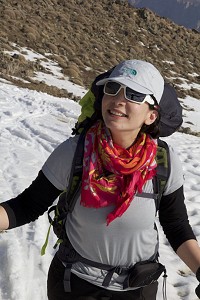
'I want more freedom for women in Iran, that climbing gets more accessible and that men and women can at least dream equally.'
How did you discover climbing?
I was only five when my dad started taking me up the hills near where we lived, in particular a 3000m peak that became my weekend playground. Dad would wake me up at 3am and we would set out in the dark to avoid the summer heat. He always took a flask of tea and some flat bread and cheese which we would have on the top. I got used to dad's slow and steady plod which I still have! As we approached the summit, he would hold hands and we would step on the top together. He would give me the biggest bear hug, take the tea out and sit down and point to all the nearby peaks and tell me how we were going to climb them all together.
How easy or difficult is it for women to get into sport and exercise in Iran and for what reasons?
Although sport and exercise is available to Iranian women in various leisure centres, which offer gym facilities or indoor environments where women can practise their favourite sport more freely, these facilities are more scarce in smaller towns. The opening hours can be limited for women, with men often having longer access to the facilities. For example, the climbing wall in the city of Karaj (a big city just neighbouring Tehran) is only open to girls on two evenings per week for an hour at a time and it only consists of a few routes, whereas in Tehran there are far better facilities with more accessibility for girls. Outdoor sports, however, are much more limited. For example: open water swimming, distance running, cross country cycling etc are hard to practise. Although in the last few years a few girls have been pushing boundaries and participating in such sports.
In your film Damavand, you mention that the mountains surrounding Tehran offered you a freedom that you couldn't experience in civilization. Can you expand a bit more on this?
I was born in the same year that the Iran-Iraq war broke out. A seven year war that crippled the country's economy and morale. These years following the revolution in Iran saw religious laws strictly observed and maintained in Iran. This meant that from primary school years, my social life became segregated. Girls school, female teachers. The only men I socialised with were family. Even in big family gatherings, parties or celebrations, you tend to be in a women's circle, especially as I approached my early teens. Yet I was very lucky, as from the age of five my dad started to take me along on his hikes in the hills nearby. I was hooked. As a little girl (before I was subject to following Islamic rules to do with how a woman should behave or what she should wear) I enjoyed having nature as my playground. I would climb trees, build stuff with sticks and rocks, find bugs, catch butterflies, find porcupine spikes, collect snake skin - stuff that might sound like normal activities for children to do in the West, but not the usual thing for a girl growing up in Tehran with its limited green spaces and country parks. As I grew older and by the age of 9 when I had to start covering my hair, pray and fast, the mountains suddenly offered a whole different world. A world where it was okay to let the scarf slip. To let the wind magically blow your hair around. To dip my head under a waterfall and get soaked wet after a long hike in hot temperatures. To run and shout joyfully because there was nobody around!
How did your experiences in the mountains – climbing alongside men – affect your approach to life upon returning to the conservative atmosphere of the city?
As my dad was involved with the university mountaineering club, I often joined the uni's meets and happened to be the only girl most of the time. Our hikes and climbs were very regular and frequent. I was 9 when I climbed Iran's second and third highest mountains (Alam Kooh 4850 and Sabalan 4800) and in the following years climbed a lot of the 4000+ peaks in the Alborz range. My dad and his friend (who is now over 70 and has climbed Damavand over 90 times) became my mentors. On these mountains, I learnt a lot about myself and life. Not only a lot of valuable life lessons such as planning, training, discipline and respect, but also I experienced something amazing. That on those trips, I was one of the team. An equal to those men. In the city I might have had to sit separately and eat separately but on the mountain, I ate with the same men, slept in the same tent or hut, had the same ambitions and physical challenges and actually managed to climb faster or higher than many other members of the team. This definitely gave me an attitude in life. I was not shy speaking to men. I was not hesitant in voicing my opinion. I always questioned the way things were. I wanted the same things men could enjoy and above all, I became a dreamer! I absolutely thought I can dream of anything and can work really hard and the chances are I could achieve them! By age 15, I was obsessed with the Himalayas and Everest and the first step towards those was climbing Damavand.
Tell us a bit about your ascent of Damavand - it meant a lot to you to finally realise your dream. What did climbing Damavand symbolise or represent for you?
The first time I climbed Damavand was a dream come true. This mountain that I had always seen from Tehran, and had talked about so much with my dad became a symbol of my childhood dreams and ambitions. Once I climbed it, I knew that climbing and being in the mountains was what I wanted to do for the rest of my life. That I want mountains to be the centre stage of my career. Climbing Damavand rekindled an old passion in me. I had gone full circle in life, having got married, having had kids, having studied at uni and then I had come back to feeling like an excited 10 year old again. Suddenly life was full of possibilities and promises.
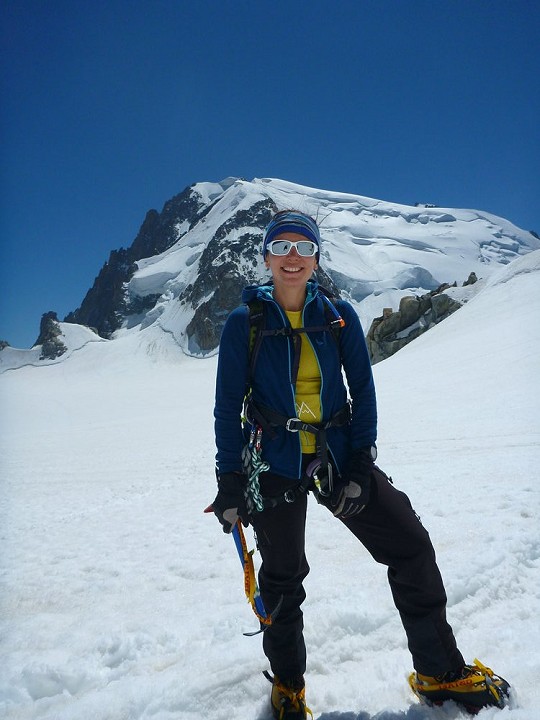
Have times changed since you were growing up – Are there more women accessing the mountains in Iran today than before?
Yes! Massively. When I was growing up, you needed a man to climb with. A male guardian. A father, a brother and an uncle. It was almost impossible to see a lone woman on the mountains. There were not as many clubs as you would find now. Now though, every city has a couple of mountaineering clubs and women are actively involved in planning and executing meets. There is an increased number of female instructors, professional rock climbers and ice climbers in Iran now. However, it is still not very common for a girl to have a male climbing partner or for girls to go off and do things completely on their own. Male presence often has to be there to make things happen.
"On those trips, I was one of the team. An equal to those men."
Your 'stealthy freedom' was enjoyed in the mountains. How did escaping from the morality police add to the experience of being outdoors in the mountains?
I wasn't looking at it as an intentional escape. Down in the city I followed the laws of the country but the peaceful and quiet environment of the mountains allowed a degree of freedom you would never have down in the cities. The Stealthy Freedom Facebook movement is an act of defiance and the girls participating in it often intentionally do so to challenge the regime. For me, it was a personal thing. I wasn't trying to challenge anything. I wasn't trying to prove a point. I just wanted to be me. Just wanted to be free, so yes, the mountains offered that to me. For me, having my hair blowing away in the wind is such a precious feeling. Having the sun stroking my skin and feeling so close to the nature is what makes it all so special.
Were you afraid? Or did you feel a sense of rebellion?
I have never been afraid. I have always been respectful and conscious of the surroundings. I have never confronted anyone or been confronted yet. On the mountains, and especially high up you have to cover up due to the cold and the strong sun anyway. It has been very hot and there have been no people around. I have let the scarf fall or taken off the longer tunic and hiked in a tshirt only. But I have always known where the boundary lies and how and when I can do what.
"On a very personal level, I am proud to be an Iranian woman, running expeditions to Iran, travelling with my teams and actively managing expeditions out in the mountains."
How can climbing empower women, in your opinion?
Climbing and being in the mountains was the only place I felt like an equal to the fellow men in the group. Afterall, there is a platform where you can do well, equally well and sometimes better than your male counterparts. It proves to the woman that she can! That despite many obstacles, she can achieve and feel great!
You run a climbing and guiding company Persian Pursuits, which organises climbing trips to Iran. How can you help to promote climbing in Iran – for women in particular?
One of the reasons I set up my company was realising how little people know about Iran's mountaineering and climbing scene. A lot of people in theWest do not even know there is superb skiing in Iran! Additionally I have come to get to know a lot of Iranian female climbers and one of the things I have enjoyed is sharing their stories here in the West, and helping them in whatever way I can. Be it contacts or introducing sponsors or collaborations. On a very personal level, I am proud to be an Iranian woman, running expeditions to Iran, travelling with my teams and actively managing expeditions out in the mountains. I hope to set a good example to visitors that an Iranian woman can and does have the freedom to do things which are perhaps not very common. This is perhaps not immediately expected in Iranian communities but it often is welcomed.
"I want more freedom for women in Iran, that climbing gets more accessible and that men and women can at least dream equally." In your opinion are things moving in the right direction for this to become a reality?
Definitely. More and more women are joining clubs which somehow is offering a safe and protected environment for girls to go climbing. Those famililes who are protective and would not have been happy to send their girls climbing with random friends or strangers, feel reassured knowing that their daughter, sister or wife is part of an organised club trip and is well looked-after. This has opened climbing to many more conservative families. However on a professional level, female climbers who have to devote more time to training and climbing struggle as the facilities are not geared for equal use and often women have many more restrictions on using indoor climbing walls.
"What amuses me most is how little people know of Iran and especially of its mountains. As an Iranian living in London who visits Iran regularly and is in touch with the climbing communities in both countries, I saw myself in a great position to bridge the gap between Iran and the west."
What difficulties or misunderstandings can people face travelling in Iran to climb and can they be resolved?
Women often worry about travelling to Iran. This is due to lack of correct information based on the negative perception of Iran thanks to the biased media coverage. Iran is a very safe country, particularly for female travellers as most people will really try and look out for you. Unfortunate incidents that have happened have never been more frequent than our modern Western cities and often do not happen to foreigners anyway. Iranians themselves are incredibly hospitable and friendly and will go out of their way to help a tourist. The only difficulty tourists may face is lack of guidebooks and materials, especially when it comes to rock and ice climbing and perhaps the language when you travel into more remote regions.
Where would you recommend for a first climbing trip to Iran?
Tehran is in the foothills of the 4000m peak Tochal which offers superb rock climbing, a two-hour hike from Darband at a place called 'Band-e Yakhchal'. Bolts can be rusty and routes might look sparce but Band-e Yakhchal offers an amphitheatre of large boulders with a decent number of routes on them. Further up, the Shervin wall offers great multi pitch climbs. If you have more time on your hands, you can travel 3 hours north west of Tehran to reach the amazing 'Pol-e Khab' with a short approach from the Chalous Road, it offers many sport climbs (single and multipitch) all on one continuous wall. Bistoon wall in the Zagros range is another well known spot and has welcomed a couple of international meets in the past.
If big wall climbing is what you want, the North face of the 4850m Alam Kooh, Iran's second highes peakt offers great challenges both in summer and winter.
Watch Shirin's short film Damavand - An Iranian Dream below:
Farnaz Ezmaeilzadeh
Farnaz is 27 years old and lives in Zanjan, Iran. She is a member of the Iran national climbing team and works as a climbing coach for women and girls to raise funds in order participate in international competitions. Unlike Shirin, Farnaz's focus on competitions requires her to train in the city, where compliance with social law restricts her access and opportunities. This season, she is training at The Boulders Climbing Gym in British Columbia, Canada.
"I was always alone, just with my belief and my parents and people who loved me encouraging me."
Tell us a bit about how you got into climbing?
Fortunately I was lucky enough to be born into an athletic family. My parents were both mountaineers. Also, my younger brother is a big wall climber, so I had climbing roots in my family and really wanted to start when I was young.
What have you achieved in competitions so far?
Climbing was not just a sport for me, I learned lots of things through it and now I'm living for climbing. When I started I was weak and no one believed in me. I learned how to overcome my weaknesses and make my body and my mind stronger. I had lots of problems to continue with it, but but overcoming them all made me a stronger girl. After a year of starting climbing, I could join the national team and every year I had better performances with lots of gold medals in national competitions, internationals, Asian championships and good results in World Cups. I achieved lots of goals in this way and made my family happy. I encouraged others to follow their dreams and that's very valuable to me.
How easy or difficult is it for women to get into sport and exercise in Iran - especially competitions - and for what reasons?
In recent years women's sport has become more popular than before. Yet still from the perspective of society climbing is a difficult sport and tough for girls and it's not really 'normal' yet. We have lots of climbing gyms and areas for outdoor climbing, but the situation for pro athletes as a girl is a little harder. As we have limited time to train (we train separate to men at different times and can't train with them). For example, I never had a coach and learned from lots of studying and watching climbing movies. I don't have any serious rivals in my country and it's hard to stay motivated for years. No one supports me to compete in World Cups and I don't have any sponsors - I spent all of my prize money buying flight tickets to take part in competitions. I was always alone in this way, just with my belief and my parents and people who loved me encouraging me.
How difficult is it for women to go rock climbing outdoors - are there extra barriers to climbing outdoors?
I guess outdoor climbing is not difficult at all and we have more freedom to go to the crags and don't need to go at a separate time and gain permission to climb. It's harder when you want to compete and you need money, facilities and need to train many times a day on a wall (especially a speed wall) and you can't.
You have mentioned offering women's coaching classes to raise funds to attend international competitions - have these classes been popular?
Not as popular as in other countries, usually parents are fearful of climbing and they think it's not safe for kids. I tried to change their way of thinking. Honestly I can't earn enough money from coaching. I just want to be useful and help others to progress and know more about climbing.
Cultural issues aside, do you think women climbing together can have advantages over climbing with men? In the UK, the situation is reversed: we try hard to organise events to bring female climbers together, as most women find they have to climb with exclusively male partners due to a lack of women participating in climbing.
On the one hand it's good, because you can find a female partner who is similar to you and you can match your training plan relative to female strengths and weaknesses. But on the other hand, if you have bigger goals, you can't get enough progress with this situation. In all, I think it really depends on your perseverance.
Do you think allowing women to become more involved in watching sporting events will encourage participation?
Of course, fortunately everything is improving. It can help women to become more interested in sport. If they watch competitions they will find themselves and their goals. Some people are really talented and they don't know it! They just need a little encouragement to find a way to grow and flourish.
"When you're climbing in Iran, you're trying to find yourself and you don't care about society's old-fashioned views about doing an unusual sport as a woman."
Have times changed since you were growing up - are there more women climbing indoors and outdoors today than before?
Sure, when I was young no one knew about climbing and I never had a coach, good facilities or a good wall to climb on. But now it's more popular. I'm coaching kids and younger climbers, we have more gyms, more national competitions for all ages and everything has improved over the years. I'm hopeful for the future of climbing in Iran, especially for female climbers.
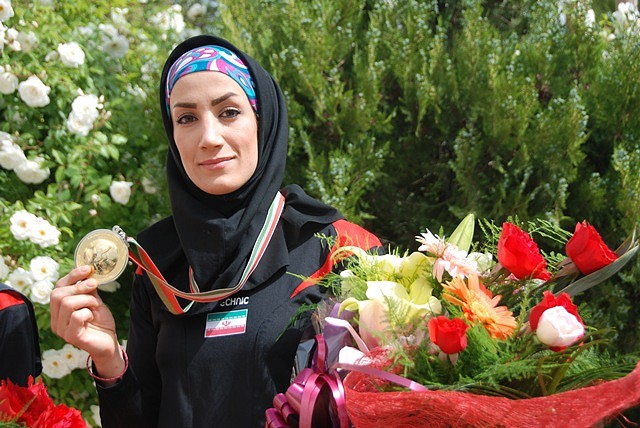
What does climbing bring to you that you don't get to experience in everyday life?
Climbing made me a warrior who will never surrender. I learned I can be my own hero or even a hero for others if I try hard enough for my goals and desires, I learned there isn't any limitation in this world and that my situation can't be a barrier between me and my goals. It's just a difference in the way of thinking that can make our life difficult.
How can climbing empower women in Iran, in your opinion?
When you climb you feel more courage and confidence within yourself. When you're climbing here you're trying to find yourself and you don't care about society's old-fashioned views about doing an unusual sport as a woman, it's a pure power of body and mind that everyone needs to feel.
What are your personal goals in your climbing?
To improve my climbing abilities, become the first Persian girl on a world podium, to break my personal best and Asian record on the standard speed wall, to compete more and win more medals, enjoy outdoor climbing, consistently rank in top 10 for speed climbing world cups and improve my world-ranking. To promote the sport of climbing to a wider community and lead and inspire others in my country and around the world.
Zohreh Abdollehkhani
Zohreh is 32 years old, a climbing coach and is a member of the Iran national ice climbing team. She lives in Karaj.
"This is what I really want to emphasise to the world: that despite everything, Iranian women are alive! We are motivated to do things."
Tell us a bit about how you got into ice climbing.
Both of my parents were climbers, so I went mountaineering with my parents at 3 years old. Then at 20 I started rock climbing and from the age of 27 until now I have concentrated on ice climbing.
Did you face any barriers in participation?
Since ice climbing was a new sport in my country, there was not enough equipment, facilities for training or coaches and lack of perspective that women can do ice climbing, but the first time I climbed with ice axes I loved it and just wanted to continue!
"If no-one knows of you, no sponsors come to support you. It's a problem I see with all my female friends in different fields, not only ice climbing. You have no chance to show yourself to an audience."
What have you achieved in ice climbing so far?
I have been Iranian national champion four times. In 2014, I placed 3rd at the Asian Ice Climbing Championships, the first ever medal in ice climbing for Iran. I also placed 10th in a UIAA World Cup, which was the first time anyone from Iran had made semi finals. I was also invited to represent my country at the Sochi Winter Olympics, as ice climbing was demonstrated there. I was there with another man from Iran and we both gained the title of "Inspiring Ice Climbers"!
How easy or difficult is it for women to get into sport and exercise in Iran - especially ice climbing competitions - and for what reasons?
Ten years ago I would say it was definitely difficult, but today I think things are moving and scoiety is progressing and getting along better with women in sport. Of course it's not yet the same as it is for men, but it's progressing. We have a problem within TV, newspapers and the media in general - public communication doesn't show us women in sport, so a lot of people don't know, for example, that there is an ice climbing team, or a woman doing ice climbing or indeed lots of other sports. If no-one knows of you, no sponsors come to support you. It's a problem I see with all my friends in different fields, not only ice climbing. You have no chance to show yourself to an audience.
The first time that I went to the UIAA Ice Climbing World Championships, everything was so strange for me and also for the other climbers as they had no idea what an Iranian woman would be like, they were afraid of us and they thought we were so different. They had some false ideas about our team and especially about Iranian women. I'm so happy that now, after four years of attending world ice climbing competitions, I have changed something in ice climbing. We have shown that although there are lots of difficulties, I can do a sport in my own country and although there are lots of boundaries for women we keep trying and keep going and this is what I really want to emphasise to the world: that despite everything we are alive! We are motivated to do things.
"I feel I can play an important role for my country and for ice climbing in general."
Have times changed since you were growing up - are there more women ice climbing today than before?
Of course, it really makes me happy because when I started I was alone and I feel that I have motivated lots of other female ice climbers in the country, which makes me really pleased - even if they try to beat me sometimes! That's ok, it's really inspiring. I started along a path where no-one before me went, now lots of people are following this path and it's inspring.
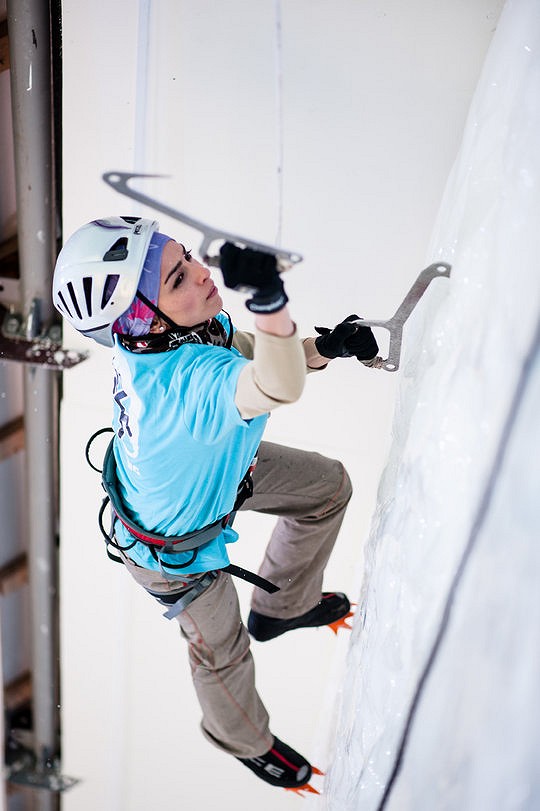
What does ice climbing bring to you that you don't get to experience in everyday life?
It makes me feel invincible, because there were lots of difficulties, no coach, no sponsors or proper equipment. I just had a deep desire to climb, nothing more. Now it's much better, I can do anything that I like. It gives me a great feeling, lots of confidence.
How can ice climbing empower women in Iran, in your opinion?
I think when you start something and continue to live it with enthusiasm, then you yourself are inspiring to other people. I'm a coach too so I try to share my passion with my students - especially little girls and boys, the next generation of Iranian ice climbing. It's what I love doing and I feel I can play an important role for my country and for ice climbing in general. It can give women a sense of self-worth.
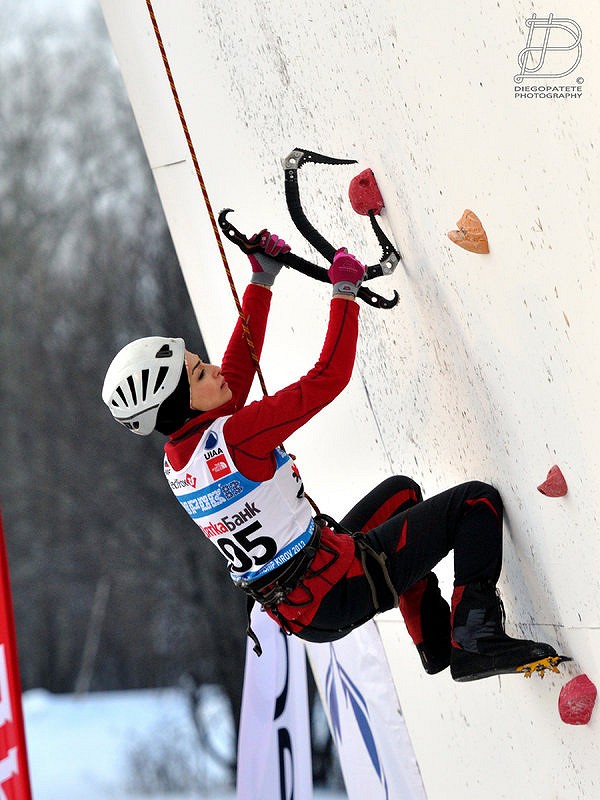
What are your personal goals in your climbing?
I'm a really ambitious person and I really hope that one day I can win an international medal. When I won my continental medal, before that all the medals in Asian championships were won by Koreans, so when I won it it was not only the first ever medal for Iran but also the first non-Korean medal! I think if I can find some support I can do it. I would like to win a world medal in the future.
Can you recommend some good areas for a first ice climbing trip to Iran?
In winter there are lots of ice falls such as the Khur icefall. We also have an ice climbing school. There are lots of waterfalls which freeze during winter but when spring comes they melt! So then we go dry-tooling. I really hope to have the chance to go to different countries and do ice climbing there.
References:
1. Jenny Steel, and Sophie Richter-Devroe. "The Development of Women's Football in Iran. A Perspective on the Future for Women's Sport in the Islamic Republic". Iran 41 (2003): 315–322. Web...
- INTERVIEW: Albert Ok - The Speed Climbing Coach with a Global Athlete Team 17 Apr
- SKILLS: Top 10 Tips for Making the Move from Indoor to Outdoor Bouldering 24 Jan
- ARTICLE: International Mountain Day 2023 - Mountains & Climate Science at COP28 11 Dec, 2023
- ARTICLE: Did Downclimbing Apes help Evolve our Ultra-Mobile Human Arms? 5 Dec, 2023
- ARTICLE: Dàna - Scotland's Wild Places: Scottish Climbing on the BBC 10 Nov, 2023
- INTERVIEW: Loki's Mischief: Leo Houlding on his Return to Mount Asgard 23 Oct, 2023
- INTERVIEW: BMC CEO Paul Davies on GB Climbing 24 Aug, 2023
- ARTICLE: Paris 2024 Olympic Games: Sport Climbing Qualification and Scoring Explainer 26 Jul, 2023
- INTERVIEW: Malcolm Bass on Life after Stroke 8 Jun, 2023
- ARTICLE: Alexandr Zakolodniy - A Climbing Hero of Ukraine 26 Apr, 2023



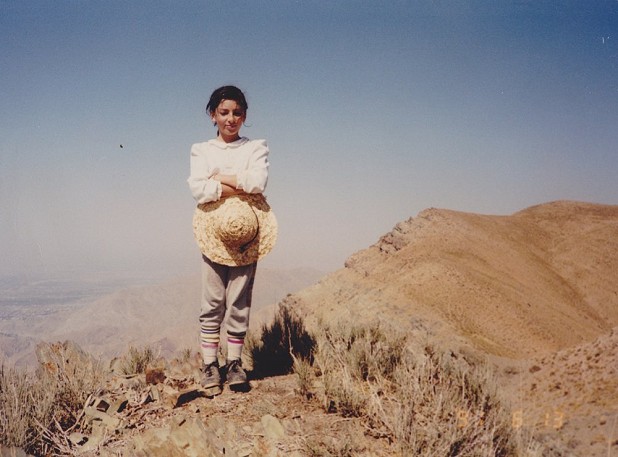
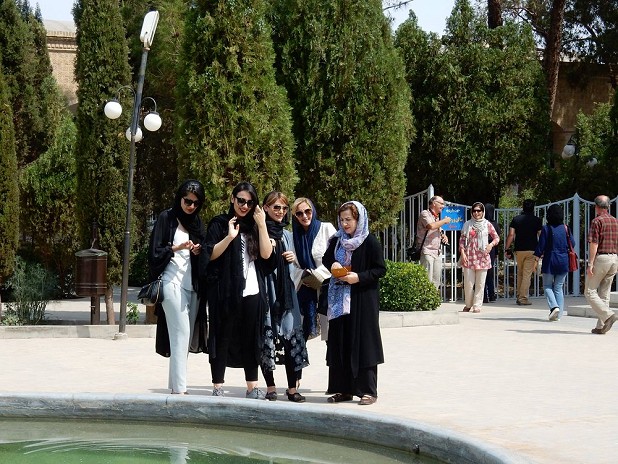
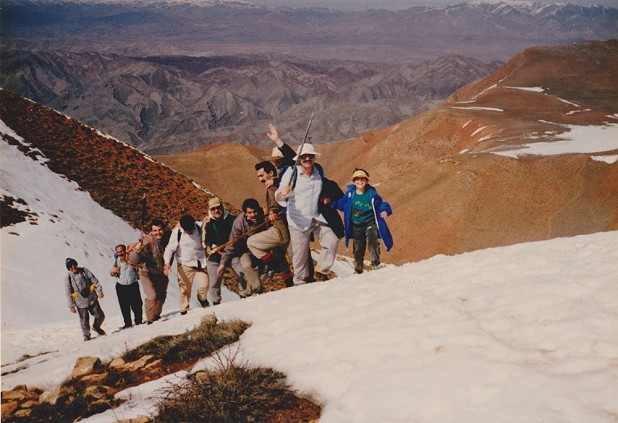
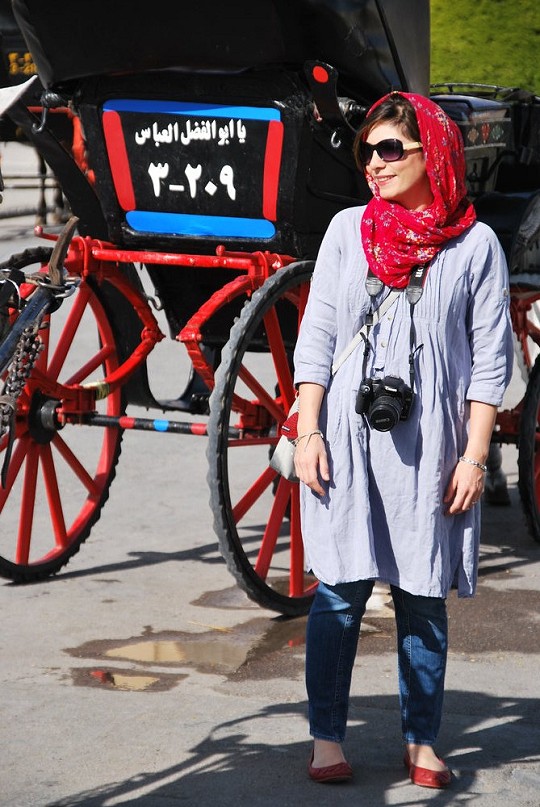
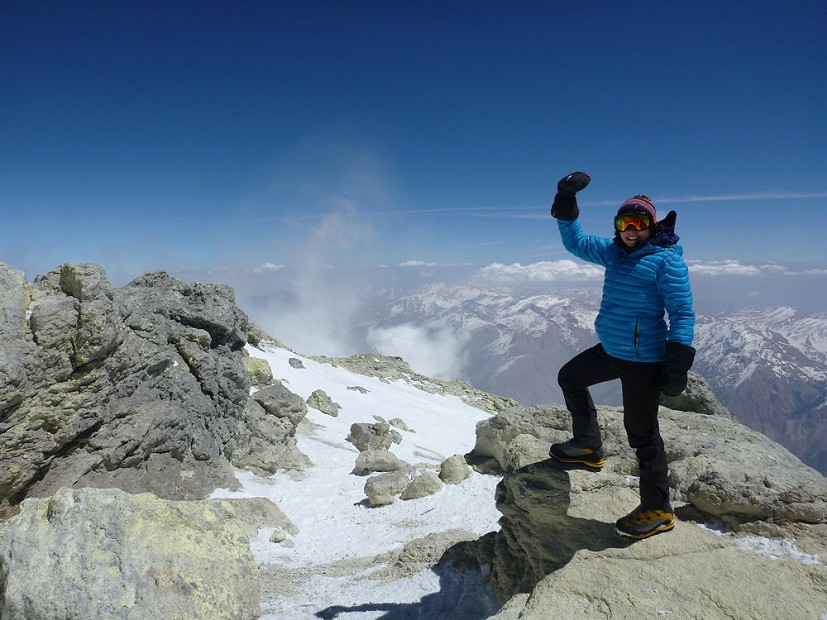
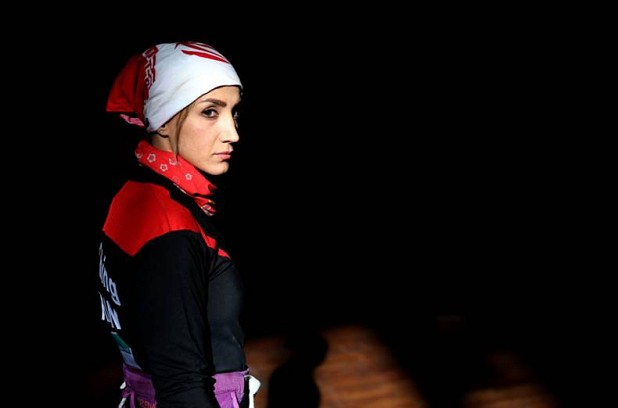
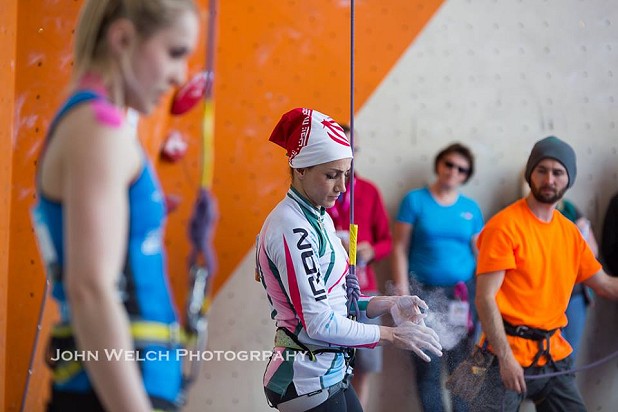
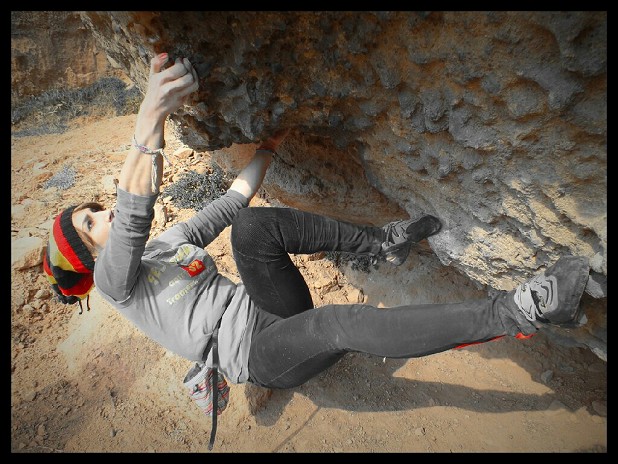
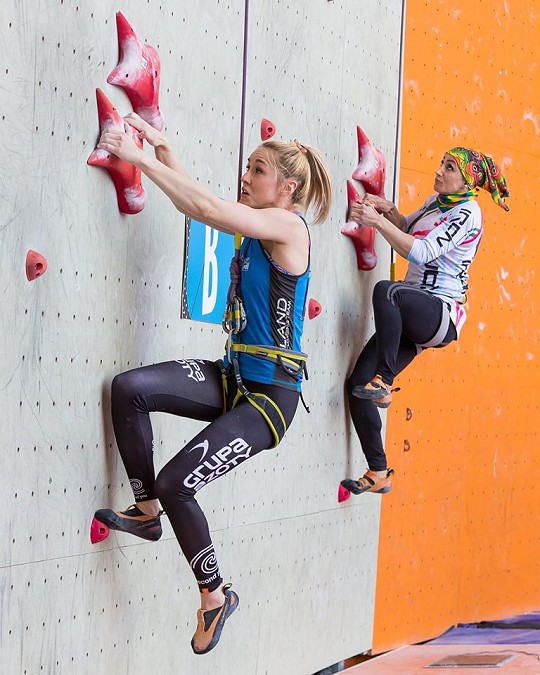
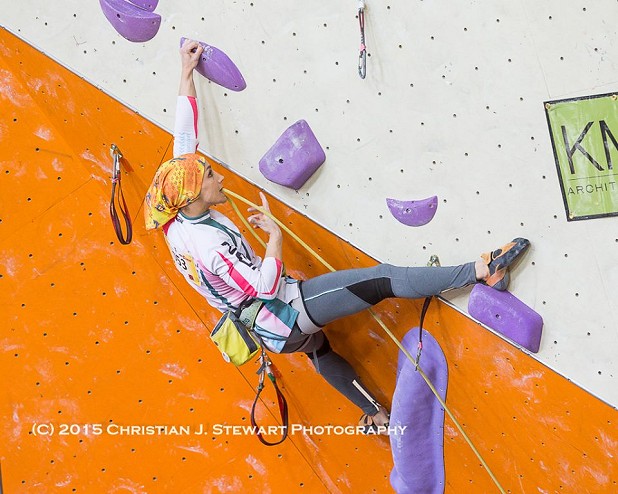
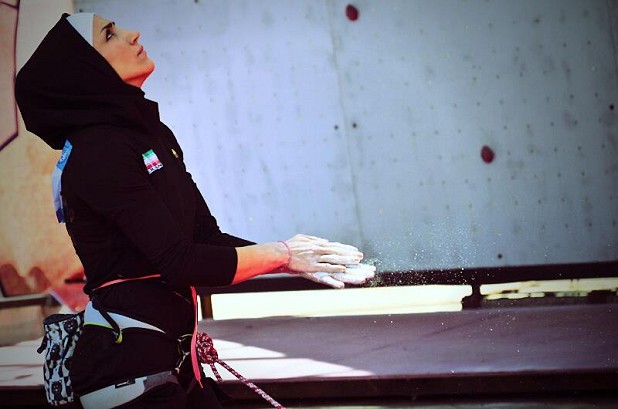
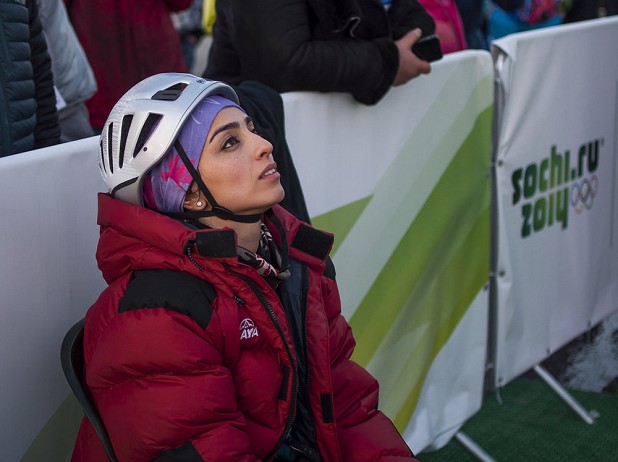
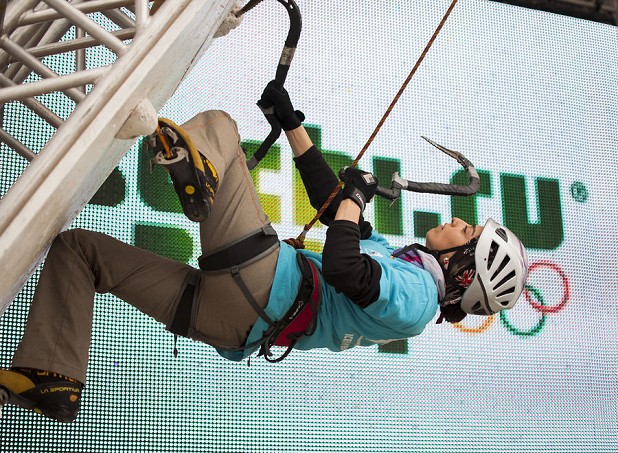

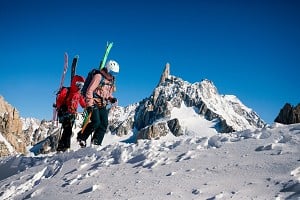
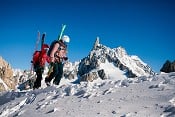
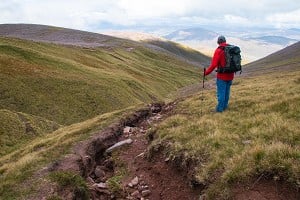
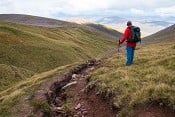








Comments